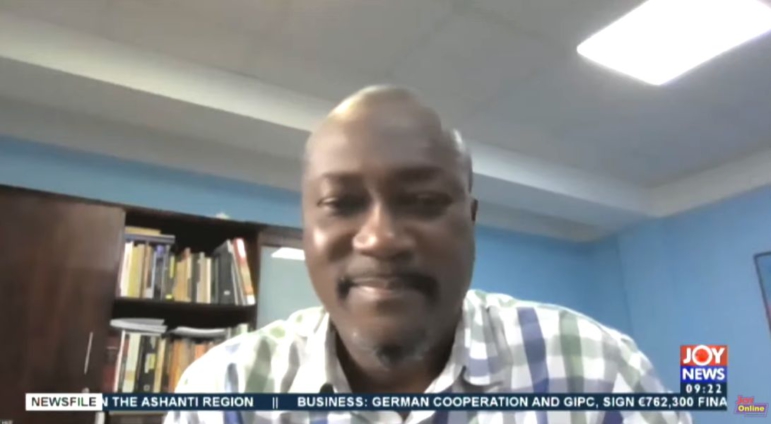
Audio By Carbonatix
The Executive Director of the Centre for Democratic Development (CDD)-Ghana has opined that Parliament should have applied to join as a party in the case brought before the Supreme Court by the plaintiff, Justice Abdullai, which sought clarity on the voting rights of Deputy Speakers.
Prof H. Kwasi Prempeh argued that at least, the Office of the Speaker could have found it expedient to exercise that right while the case was being adjudicated.
In an interview on the AM Show, Monday, he explained that it was inappropriate for the Attorney-General (A-G) to be the only defendant or party to join the case since he represents the state or the government.
“In certain matters involving independent branches of government or agencies of state, I think it is not appropriate to let the Attorney-General be the only party that is joined or the only defendant.
“Even before this judgement came up, when I saw the case I thought; ‘where is Parliament in this, where is the Speaker in this?’ I actually expected that the Parliament or the Speaker at the very least, would join the matter because that opportunity is there,” he told Samson Lardy Anyenini.
On Wednesday, Supreme Court ruled that, a Deputy Speaker while presiding over proceedings of the House could be counted as part of the quorum and has voting rights.
There has been mixed reaction following the judgement. While the Majority Caucus described it as a ‘refreshing’ outcome, many, particularly the Minority in Parliament, say the ruling is absurd and could destroy the processes in the House.
Prof Prempeh indicated that the Supreme Court ruling was a "constitutionally correct decision, no matter what one might feel about the outcome politically.”
“No matter how longstanding a practice, its constitutionality cannot be established or presumed until and unless it is challenged in an appropriate constitutional case. Thus, the fact that this is how Parliament has done its business all this while is not a good enough argument, constitutionally speaking.”
“Presiding does not, in and of itself, present much of a conflict of interest to cause a Deputy Speaker to forfeit their vote, especially if he or she were to be required by House rules to vote last or cast a vote; only when there’s a tie.”
He stressed that, “there was that opportunity for the Speaker or any other party in the House to align with one or the other side or to actually take a separate rule and apply to join this matter.”
“To the extent that they basically felt their point of view was adequately represented albeit erroneously, I do not think that, in or of itself, is sufficient. For me, I was a bit startled that Parliament had not actually found it expedient [to do so],” he said.
Latest Stories
-
Ghana and Afreximbank announce successful resolution of $750 million facility
1 hour -
IGP inaugurates Ghana Police Music Academy
2 hours -
Proposed 5-year presidential term will be difficult for underperforming presidents to seek more – Prof Prempeh
2 hours -
Constitution review was inclusive, structured and effective – Prof Prempeh
2 hours -
Public urged to remain vigilant to ensure fire incident-free Christmas
2 hours -
Why the fight against neglected tropical diseases is far from over
2 hours -
Reported losses from gold operations in 2025 remain speculative – BoG
2 hours -
Fighting AIDS and STIs in Africa: UNFPA equips youth to turn data into action
3 hours -
Amaarae returns to Accra for homecoming concert
3 hours -
5-year term will be harsher on presidents, not kinder, says Constitution Review Chair
3 hours -
BoG set to exit gold trading business, describes IMF’s losses tag as premature
3 hours -
Minerals Commission Board member warns Blue Water Guards against bribes
3 hours -
Santasi–Ahodwo dualisation takes off; businesses given final eviction deadline
3 hours -
Proposed 5-year presidential term will not apply to current President – Prof Prempeh
3 hours -
Key observations on the Constitutional Review Commission Report submitted to President Mahama
3 hours

